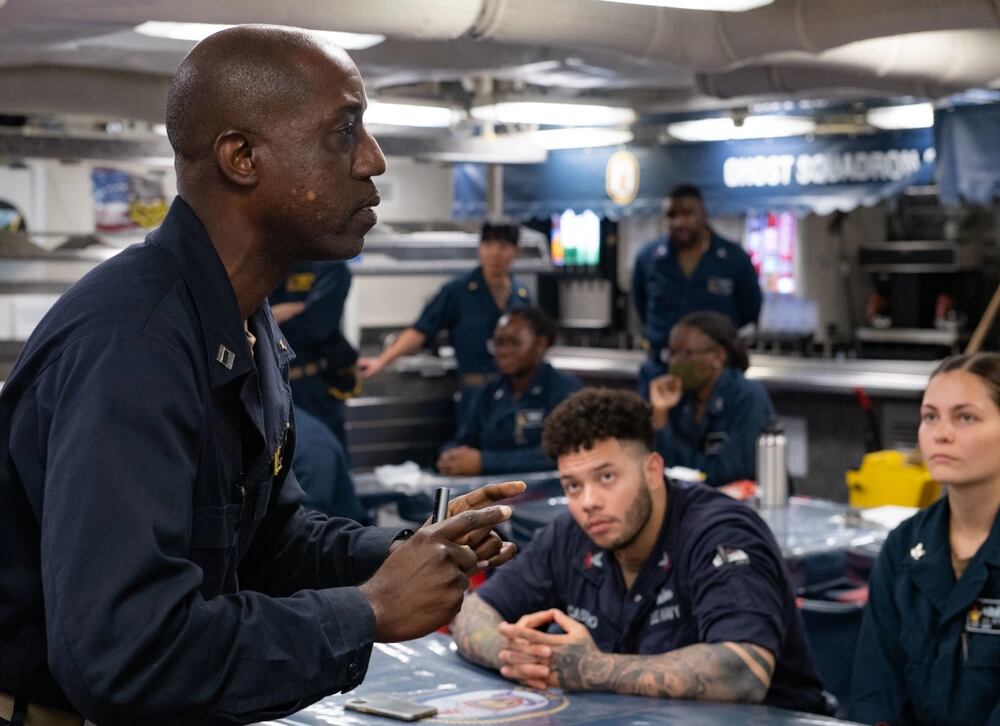SAN DIEGO – While many surface fleet sailors are stressed, most are not suffering from mental illness, the surface fleet’s chief mental health officer told Navy Times recently.
“The majority of our sailors’ issues are to the left of mental illness,” Capt. Tara Smith, the surface fleet’s chief mental health officer and a clinical psychologist, told Navy Times. “It’s life stress, it’s adulting, it’s everything…being away from home, adapting to the work hours, adapting to the environment aboard the ship.”
To help surface fleet sailors find someone they can vent to about these everyday stressors — and to ensure Smith’s clinic can focus on more serious cases — Naval Surface Forces is expanding its efforts to make chaplains a permanent part of the guided-missile destroyer fleet.
Chaplains are increasingly training with mental health providers and the military family life counselors, or MFLCs, that are now assigned to each ship. The counselors spend half a day on a ship per week, or a full day on a ship every two weeks, according to Smith. The goal of having more ship-based care is two-fold, she said.
RELATED
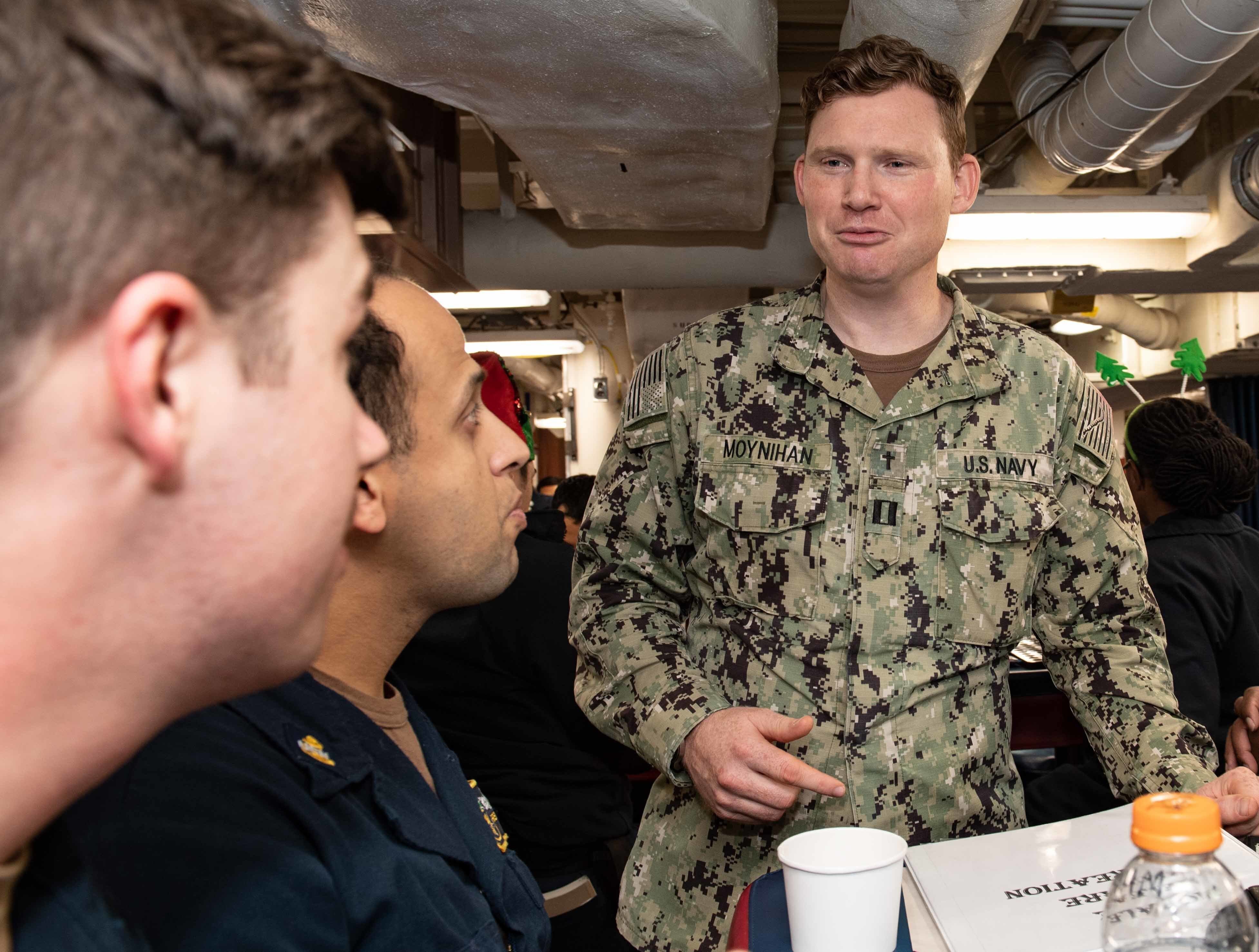
Having them there helps ensure that normal “human or Navy stress” isn’t turned into a bigger deal than it really is, she said.
“It also destigmatizes help seeking,” Smith added. “And it’s not documented.”
Overseas destroyers already have their own chaplains, and the Navy is slated to fund a permanent chaplain on every destroyer over the next two fiscal years, said Capt. Richard Ryan, the surface force’s head chaplain.
To date, 29 destroyers between Naval Surface Force Atlantic and Pacific have their own permanent chaplains.
And while getting a permanent chaplain on every warship remains a work in progress — the Navy boasts 71 Arleigh Burke-class destroyers overall — the ships are already deploying with chaplains onboard.
In 2020, 68 percent of destroyers deployed with a chaplain, Ryan said, and that number rose to 98 percent the following year.
Before, chaplains had only visited ships, and Ryan pointed to preliminary data suggesting sailors are taking advantage of having a chaplain among their ranks.
Chaplains stationed aboard ships averaged 31 counseling sessions a month last year, while ships that only had chaplains dropping in for sporadic visits averaged 2.4 sessions monthly, according to Ryan.
“We can see them after hours, we can work around their schedule, all that kind of stuff,” Cmdr. Keith Lightner, the head chaplain for Destroyer Squadron 21, said. “It’s a big difference in access to care.”
Chaplains aboard ships are helping their sailors in dedicated space aboard newer destroyers, while closets or cabins generally reserved for visiting bigwigs are used on older destroyers, Ryan said.
“(Sailors) knew that when they went to the back of the ship by the crew training room, they would find a chaplain there who could care for them in a space that was somewhat private from the rest of the ship,” he said.
Ryan noted that chaplains do not report to a ship’s command, and there is 100 percent confidentiality between a sailor and their chaplain.
RELATED
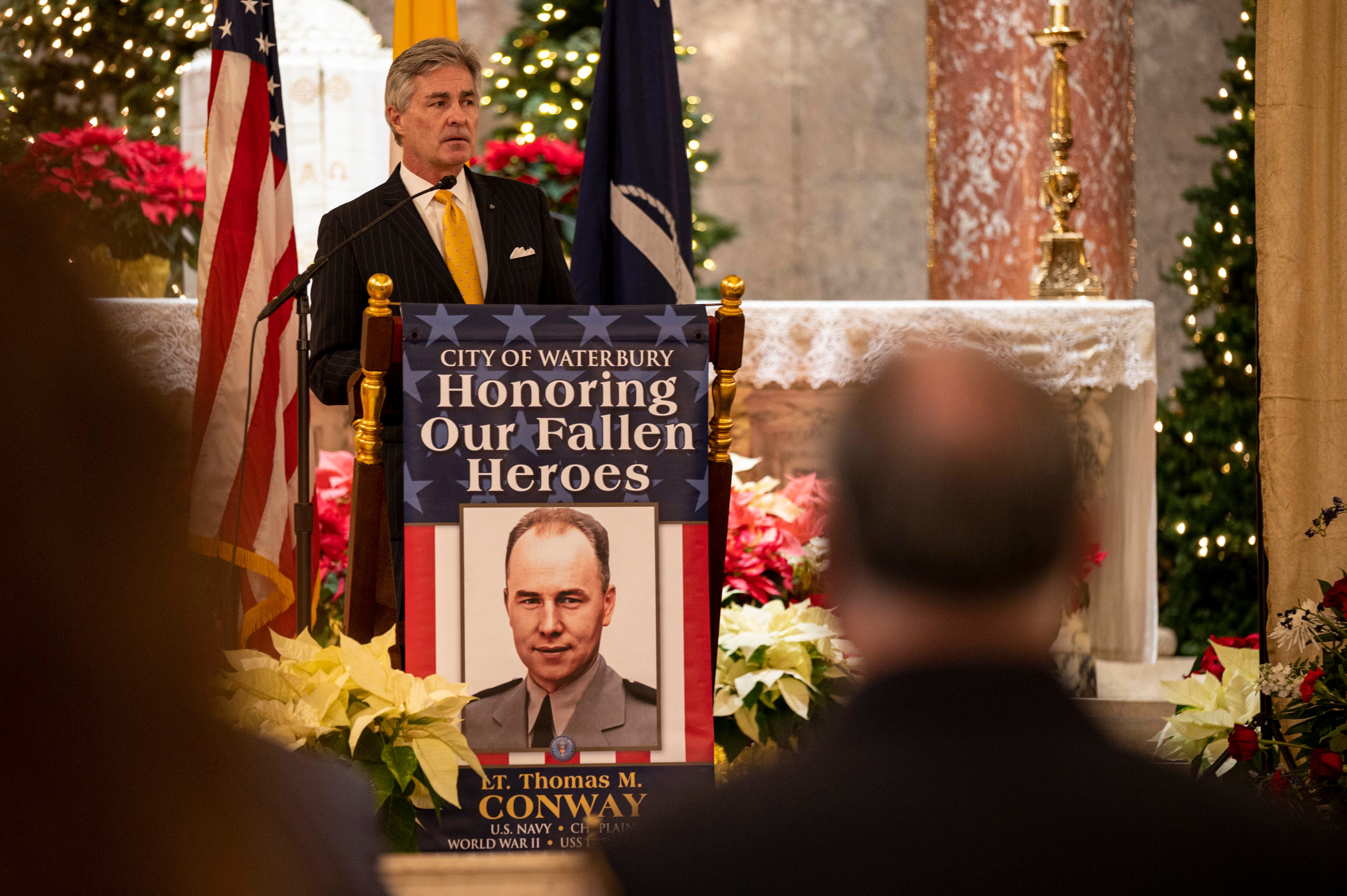
Having a chaplain onboard also frees up the potential conflict that comes from a sailor going to their chief or lead petty officer to vent, Naval Surface Forces Master Chief Greg Carlson said.
“There’s barriers sometimes,” Carlson said. “As much as we’re physically engaged with them, I have direct influence over their advancement.”
Chaplains are senior enough that, if they hear a recurring concern or issue from within the ranks, they can take it to the ship’s commander.
“We have that ability to go to leadership and say, ‘hey, this needs to be fixed,’” Ryan said. “We’re part of the command, but we’re not part of the chain of command.”
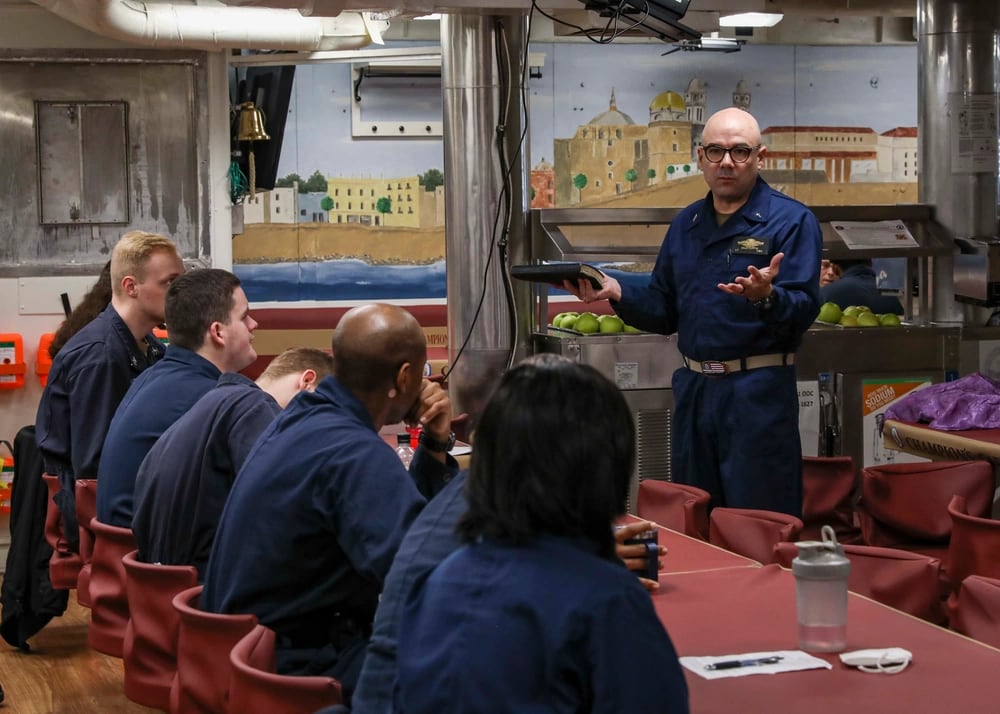
Deckplate help
Ryan receives a monthly report from his destroyer chaplains on the primary issues sailors are discussing.
The top “counseling topic” last year was operational stress, he said, which means “the general stress of having to operate on a ship…having to do life and having to do work and balance all of that.”
The second topic was religious and spiritual needs, although Ryan stressed that chaplains are not there to proselytize.
“We don’t force religion on anybody, that’s not our purpose,” he said. “If they want to talk about the religious stuff, we’re glad to talk about it.”
Family issues were the third most-common topic, while adjusting to and coping with Navy life was the fourth and command climate concerns rounded out the top five.
Having chaplains as part of the ship’s crew also allows them to serve as frontline mental health watch standers, able to keep tabs on struggling sailors and get them deeper help at Smith’s mental health clinic if needed.
Amid a continued manning shortage in the surface fleet, Ryan said chaplains can also help ensure sailors get underway.
“There might be some sailors that a mental health provider would be hesitant to send underway if there was no caregiver,” he said. “But a chaplain can check on the sailor and watch the sailor. He’s not going to do mental health therapy with them, but as long as this person has this avenue, they can get underway.”
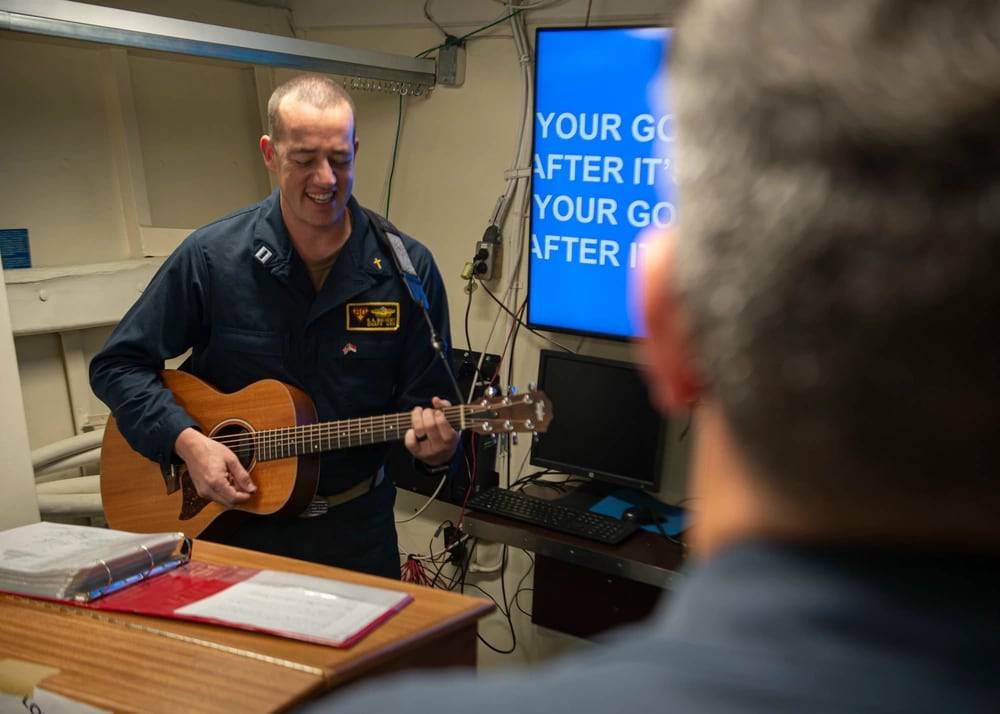
As part of this expansion, a special “Surface Chaplain Officer” qualification and uniform device are in the works for destroyer chaplains, Ryan said. The hope is that by better understanding the ship and the departments and what the crew does, they can better relate to sailors.
“Chaplains don’t need to know the procedure to start up a main engine or how to stand watch on the bridge,” Ryan said. “However, chaplains do need to have a basic idea of how the ship works and what the sailors do.”
The Navy has not done any formalized polling on how crews feel about having a chaplain in their ranks, but Ryan said that, anecdotally, the feedback has been positive.
“When you walk around a ship with a chaplain, you will see sailors of all ranks and rates greeting the chaplain,” he said. “No one passes the chaplain with their head down…(Chaplains) comment about their favorite sports team or ask how a particular event or test went. The chaplain asks how their family is doing.”
Geoff is the managing editor of Military Times, but he still loves writing stories. He covered Iraq and Afghanistan extensively and was a reporter at the Chicago Tribune. He welcomes any and all kinds of tips at geoffz@militarytimes.com.
